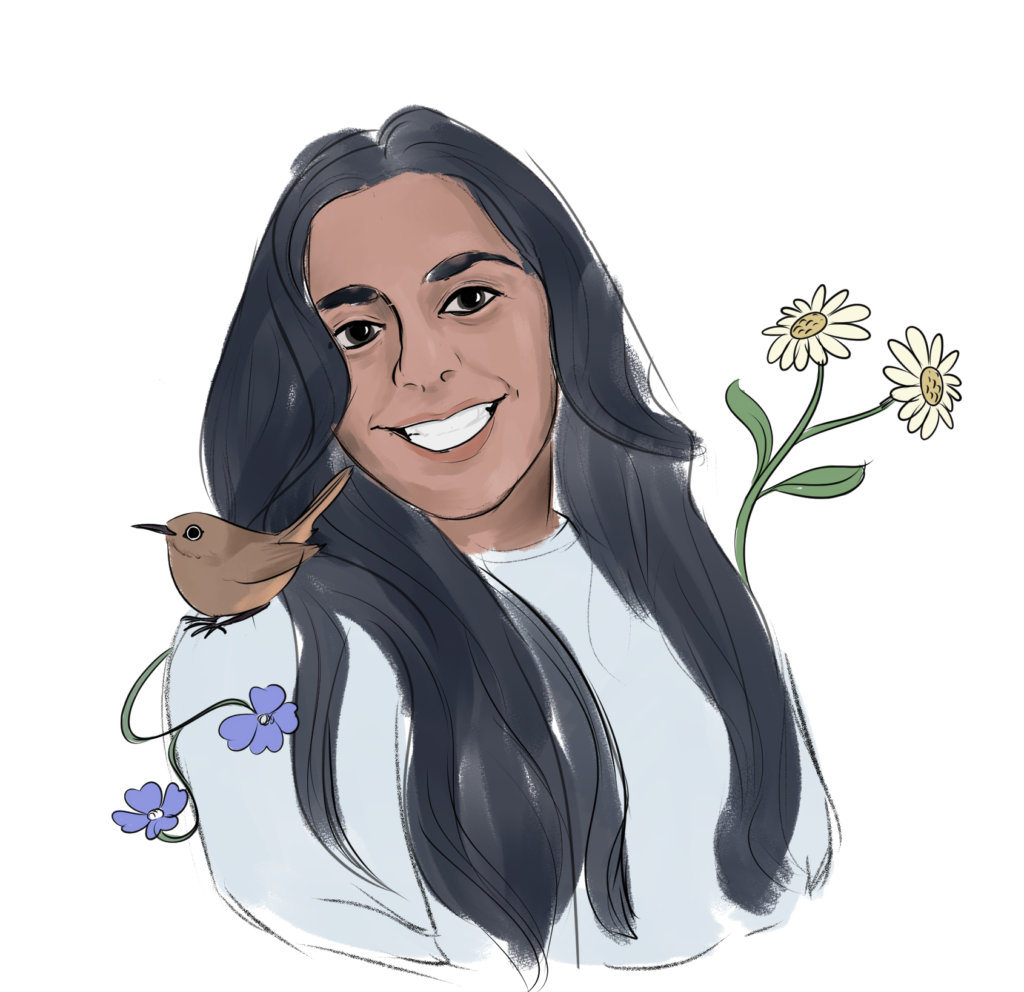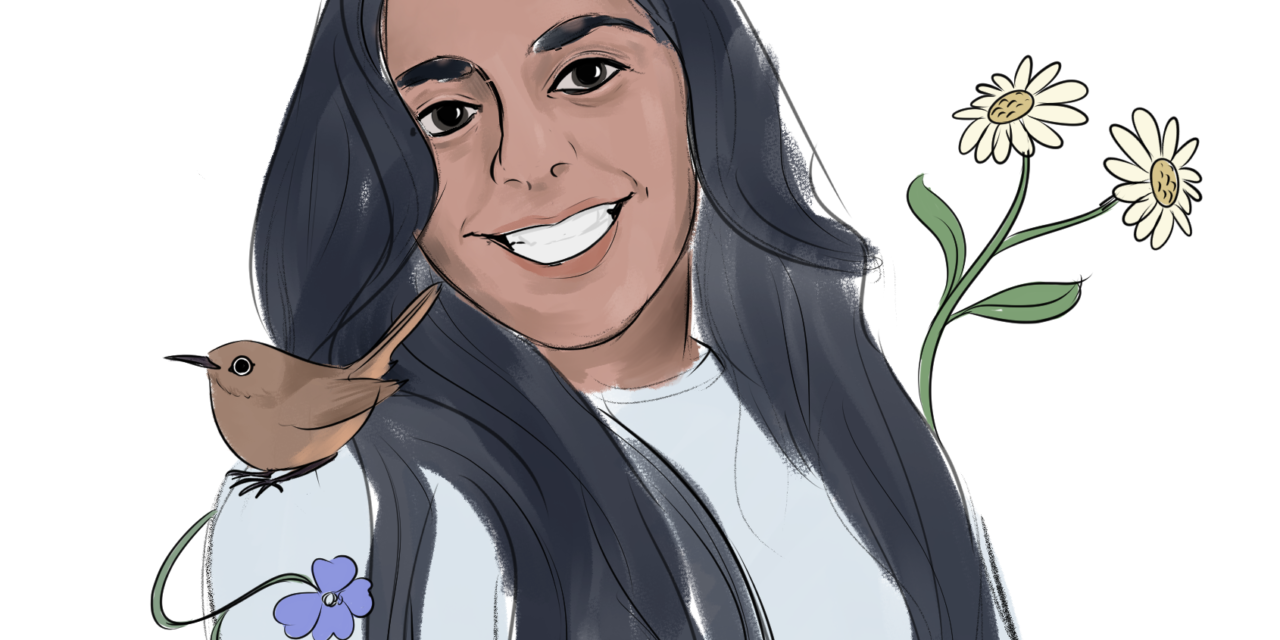
April Lawyer/Staff Cartoonist
Receiving my Emory University acceptance letter four years ago was single-handedly one of the most terrifying moments I have ever experienced. While one part of me was beyond thrilled for the privilege of leaving home to build the future I had always dreamed of, there was another part of me suffocated by years of crippling anxiety that I kept well disguised. I was terrified that every step forward was yet another step closer to failure and doom. The Emory experience packet we received as freshmen that described the great research labs on campus and our amazing faculty and staff and diverse student body, while all comforting and deeply inspiring, were none of the reasons that gave me the courage to stay and to build a community — and, eventually, to thrive. I would like to revise and expand that definition of the Emory experience.
During my time here, I was quickly charmed by Emory’s sustainability community, and co-founded a group called Plastic Free Emory to help scaffold the diverse sustainability efforts on campus. Our goal started off simply: We wanted to draft single use plastic reduction strategies. As we started talking about this vision, people started getting excited, sharing their ideas and helping us build a movement around this idea.
It was the most peculiar experience, to imagine that trash and waste broke down so many things that felt impenetrable, like talking to people with enormous titles in administration, students I had never talked to and staff that I had just seen in passing. For one, I became the “trash girl.” Suddenly, everything seemed more vibrant, more alive and more deeply connected. Our vision turned from one idea into a mosaic of many complementary, sometimes conflicting, but ultimately whole perspectives.
My Emory experience started to feel simpler and much more accessible. Suddenly, I didn’t need to be a data whizz or know everyone on campus. This experience was no longer a checklist I had to accomplish.
It was the simplicity of hope, of audacity — the simplicity of an idea that started small and was supported, nurtured and cherished by the hopes of the people around me.
This isn’t unique to me: Many people within this community have built legacies out of their passions. Through my peers, I learned how each person’s convictions and audacious resilience piece together the Emory vision. We see this in groups like the cultural and religious organizations we have all been part of, arts groups, social collectives, safe spaces and many more that are mosaics of meaning and purpose on campus. We are the culture keepers of Emory.
That ability to build a community around things that we audaciously dream about is the Emory experience.
Emory is a space that teaches us not only to ask questions and be curious about the world, but also how to translate that inquiry into action. There is a certain joy in discovery, in learning something new and uncovering new perspectives, whether it is in organic chemistry, statistics or business law. Yes, this sounds trite, but I think many of us can agree that Physics 142 was anything but joyful, and we all have those 8:00 a.m. classes that we despise. However, there is an undeniable sense of satisfaction in stubbornly chasing this curiosity and in knowing that we are crafting a future we can find meaning and affect real change in the world.
Discovery, at this point in our lives, isn’t a bed of roses. All of us are navigating the murkiness of adulting, whether we are trying to create a fulfilling social life, starting to pay taxes, looking for jobs or just existing. The process can feel messy, disheartening and just intimidating. To that end, I want to highlight the catalyst of the Emory experience: to be audacious. Be audacious in your faith that you can build the future you dream of. This goes beyond the tools the University shares with us, like the Career Center, the Office of Diversity, Equity and Inclusion, the Office of Sustainability Initiatives and more. Together, we have gotten through a pandemic, mastered the art of making sure we’re muted on Zoom, built communities and re-prioritized many aspects of our lives. By combining our dreams, some audacity and sprinkling some sass, we drown out that voice of doom — the same one that told me that I would never survive here.
As we leave this space, I only hope that we stay audacious about our dreams for a shared future that is more equitable, intersectional and intentionally pieced together by all of us. I am so grateful that you all gave me the courage to stay audacious for mine.
Thank you so much to everyone who has given my Emory experience meaning. It definitely does not stop here, and I won’t even call this graduation a new beginning. If anything, it is a convergence of all our histories and a promise for all our futures.
Nithya Narayanaswamy is from Guam and Chennai, India and majored in biology and minored in philosophy. During her time at Emory, she worked as the co-founder of Plastic Free Emory, and president of the Oxford Climate Reality Project. After graduation, Narayanaswamy is pursuing a masters in bioethics at Laney Graduate School, and plans to pursue a Ph.D. in public health.



